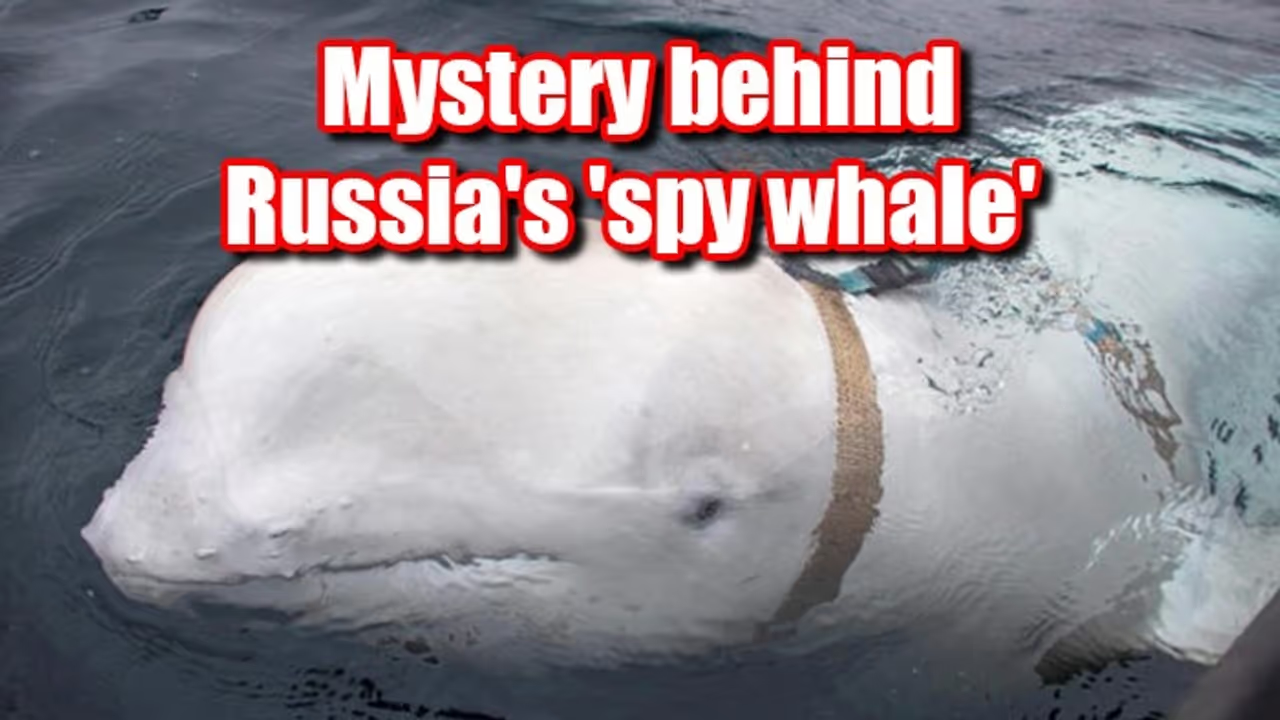The enigmatic beluga whale known as Hvaldimir, who captured global attention and sparked intense speculation about espionage, has been found dead in southern Norway.
The enigmatic beluga whale known as Hvaldimir, who captured global attention and sparked intense speculation about espionage, has been found dead in southern Norway. The 14-foot-long and 2,700-pound whale, discovered floating at Risavika Bay by a father and son fishing over the weekend, was a subject of fascination and controversy since his first appearance in 2019.
The suspicious harness and international intrigue
Hvaldimir’s story began in April 2019 when he was first spotted near the northern island of Ingoya in Norway. The beluga, a species native to Arctic waters, was wearing a peculiar harness marked with the text "Equipment St Petersburg," which led to widespread speculation about his origins. The harness, designed for a small camera, fueled theories that Hvaldimir might have been part of a Russian reconnaissance program. The idea was bolstered by the fact that Russia is known for training marine animals, including beluga whales, for military purposes.
The harness’s unusual markings and the whale's sudden appearance in Norwegian waters, not far from the Russian maritime border, led to a cascade of theories. Norway's domestic intelligence agency suggested that Hvaldimir could have been involved in a Russian research program, possibly for surveillance. Despite this, Russia never confirmed ownership or involvement, leaving the whale's true origins shrouded in mystery.
A whale with a unique connection to humans
Unlike most beluga whales, which are typically shy and avoid human contact, Hvaldimir exhibited unusually friendly behaviour towards people. His tendency to approach humans, respond to hand signals, and even interact with them in playful ways indicated that he had likely been held in captivity for a significant part of his life. This behaviour only added to the intrigue surrounding him and solidified his reputation as the “spy whale.”
Hvaldimir was very interested in people and responded to hand signals, said Marine Mind on its website. "Based on these observations, it appeared as if Hvaldimir arrived in Norway by crossing over from Russian waters, where it is presumed he was held in captivity," it added.
Marine biologist Sebastian Strand, who closely monitored Hvaldimir through the Norway-based Marine Mind nonprofit organization, expressed profound sadness at the whale’s death. “It's heartbreaking,” Strand said. “He was apparently in good condition as of (Friday). We just have to figure out what might have happened here.” Strand noted that no major external injuries were visible on the whale’s body, and further investigations are required to determine the exact cause of death.
Public fascination and safety concerns
Hvaldimir's presence in Norway quickly captured the public’s imagination. His interactions with people and the subsequent warnings from the Norwegian Directorate of Fisheries highlighted the growing concern over his safety. The Directorate issued a statement urging the public to avoid contacting the whale, emphasizing the increased risk of injury due to his proximity to densely populated areas like Oslo.
"The white whale known as 'Hvaldimir' now resides in the inner Oslofjord. This means that it has arrived in a very densely populated area, and the risk that the whale may be injured due to human contact has thus become significantly greater," the Directorate warned.
Despite these warnings, Hvaldimir remained a beloved figure in Norway, often drawing crowds and becoming a symbol of the bond between humans and the natural world. Marine Mind's website reflected on his impact, describing him as "a beacon of hope" and "a symbol of connection" between humans and marine life.
The beluga whale Hvaldimir’s journey from a suspected spy to a cherished marine creature is a poignant reminder of how a single animal can capture global attention and stir profound discussions about espionage, captivity, and human-animal interactions. His story, marked by both mystery and affection, leaves behind a legacy that continues to fascinate and inspire. As investigations continue into the cause of his death, Hvaldimir remains a symbol of both the allure and complexity of human connections with the natural world.
